International
White House blasts ‘radical’ Republican abortion bans
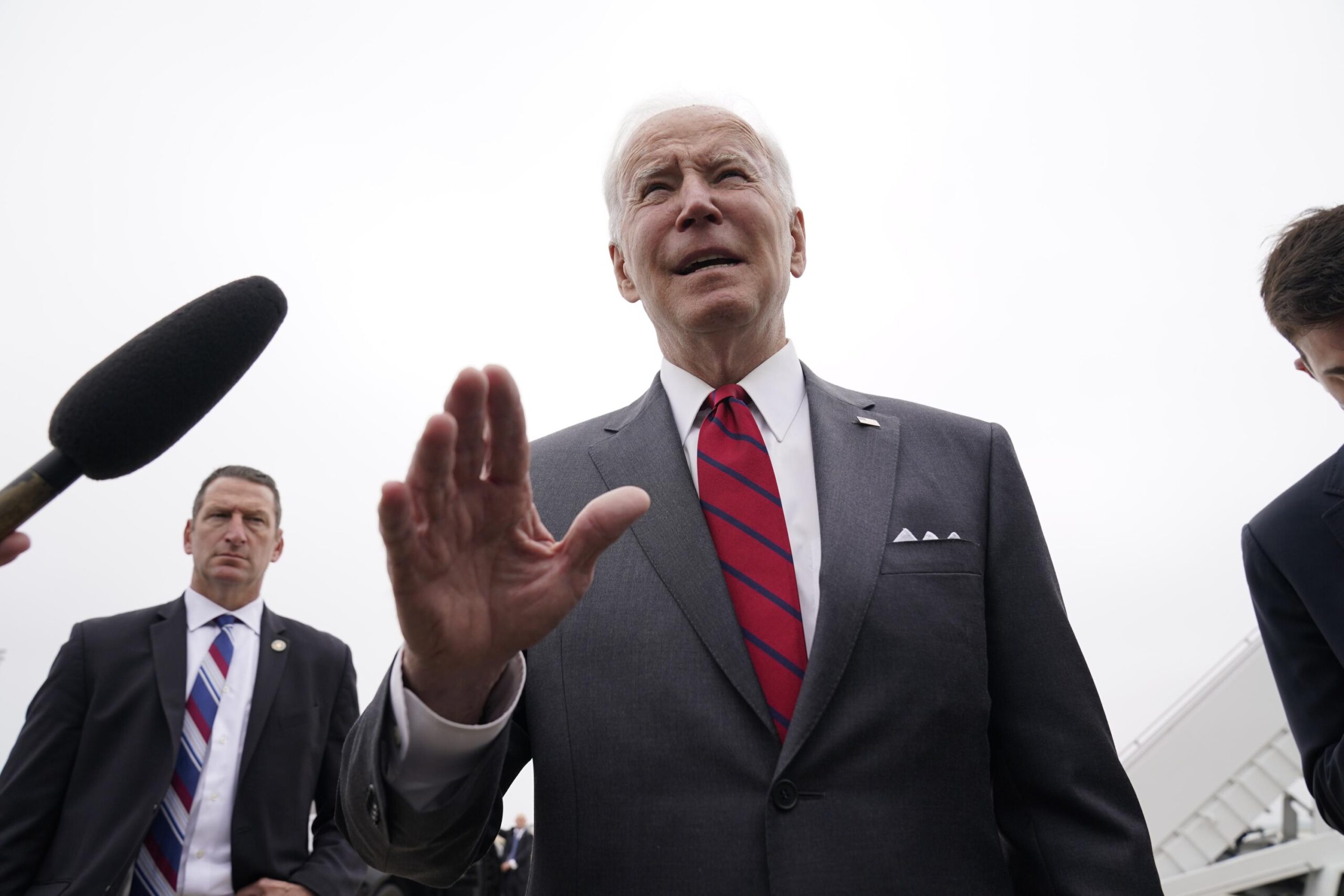
AFP
The White House on Friday blasted the latest set of “radical” abortion restrictions in four more states run by Republicans, signaling President Joe Biden’s determination to lean on the issue ahead of tight November congressional elections.
There are now full-scale abortion bans in 12 Republican-controlled states, which had prepared so-called trigger laws ready to be activated when the Supreme Court overturned the landmark Roe v. Wade decision ensuring automatic rights to abortion access nationwide.
“Today marks the latest attack against the fundamental rights of Americans as new abortion bans go into effect in Idaho, Oklahoma, Tennessee, and Texas,” Press Secretary Karine Jean-Pierre said in a statement.
“These near-total abortion bans are part of a growing effort by Republican legislators to roll back the freedoms Americans have relied on for nearly half a century. Today’s radical steps take away women’s reproductive rights and put personal health care decisions in the hands of politicians instead of women and their doctors,” she said.
The Supreme Court ruling two months ago put jurisdiction over abortion access in the hands of individual state legislatures, immediately turning swaths of the country into areas where getting the procedure has become all but impossible.
Jean-Pierre echoed Biden’s frequent demand for Congress to pass a new law enshrining nationwide abortion rights and urged “people across the country to make their voices heard” ahead of the November midterm elections, which will decide whether Democrats retain their narrow hold on the legislature.
Republicans have fought for decades to overturn the 1973 Roe v. Wade decision and finally achieved their goal in a Supreme Court that tilted sharply to conservative interpretations of the constitution after Donald Trump filled three vacancies during his one-term presidency.
Polls show the court’s ruling was unpopular with a majority of Americans, however, and Democrats hope the issue will help them fend off a previously predicted sweep by Republicans in the midterms.
“I think the American people realize this is just beyond the pale, it goes too far,” Biden told reporters at the White House.
Meanwhile, the White House is trying to help women who want to circumvent the bans by supporting their travel to states that do allow abortions.
The health department on Friday announced increased federal funding for states where the authorities want to help such women.
“We have seen the gut-wrenching stories of women suffering and not getting the care they need because of newly-enacted laws that restrict abortion care,” Health Secretary Xavier Becerra said.
The new federal assistance will “protect women’s access to reproductive care, including abortion,” he said.
International
A 4.5 magnitude earthquake shakes the coast of the Aegean Sea in Turkey without leaving injuries or damage
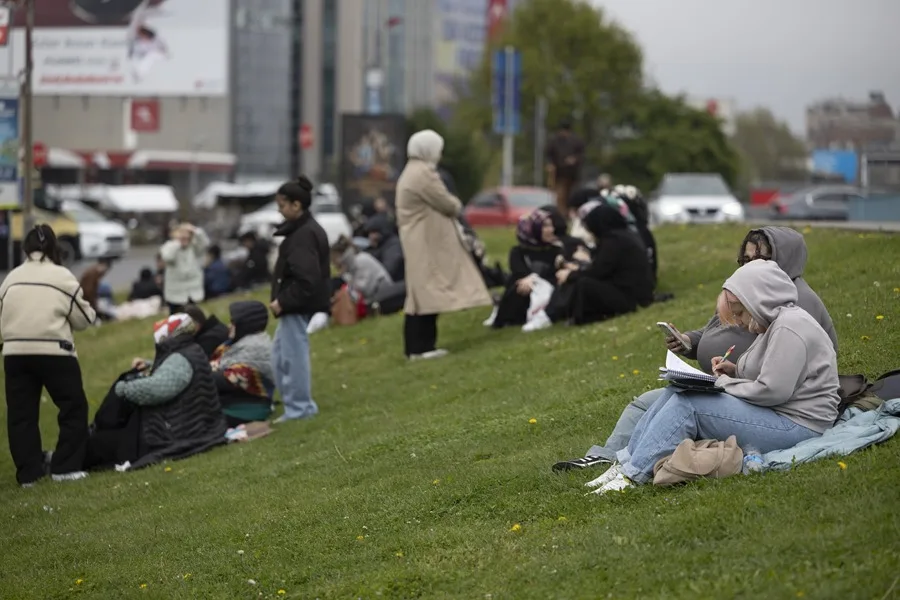
An earthquake of magnitude 4.5 has shaken this Friday the Turkish province of Kutahya, located in the Aegean Sea about 350 kilometers south of Istanbul, without causing injuries or material damage but fear among the inhabitants of the area.
The tremor was recorded around 07.29 (05.29 GMT) and was followed shortly after by another of magnitude 3.9.
“Fortunately, there are no human or material losses. We have not received any negative report. Our investigations are ongoing. We will be able to offer more accurate information after new inspections,” the governor of Kutahya, Musa Isin, said in a message.
According to experts, this tremor is not related to the magnitude 6.2 that was recorded last Wednesday near Istanbul, and which caused more than 230 injuries, most of them mild, due to panic reactions.
After that tremor, the aftershocks also continued, as usual after a strong earthquake, with three of magnitude 4.
Turkish media report that many people left the Turkish metropolis for fear of an even greater tremor and that about 100,000 people went to spend the night in spaces enabled by the authorities in mosques, schools or warehouses, or even outdoors.
With 16 million inhabitants, Istanbul is the largest city in Europe and its location, just twenty kilometers from one of the main geological faults in Anatolia, has worried experts for decades, who predict as inevitable a tremor of great magnitude “soon”, although without being able to predict when.
International
About 150,000 people say goodbye to the pope in St. Peter’s Basilica before the funeral
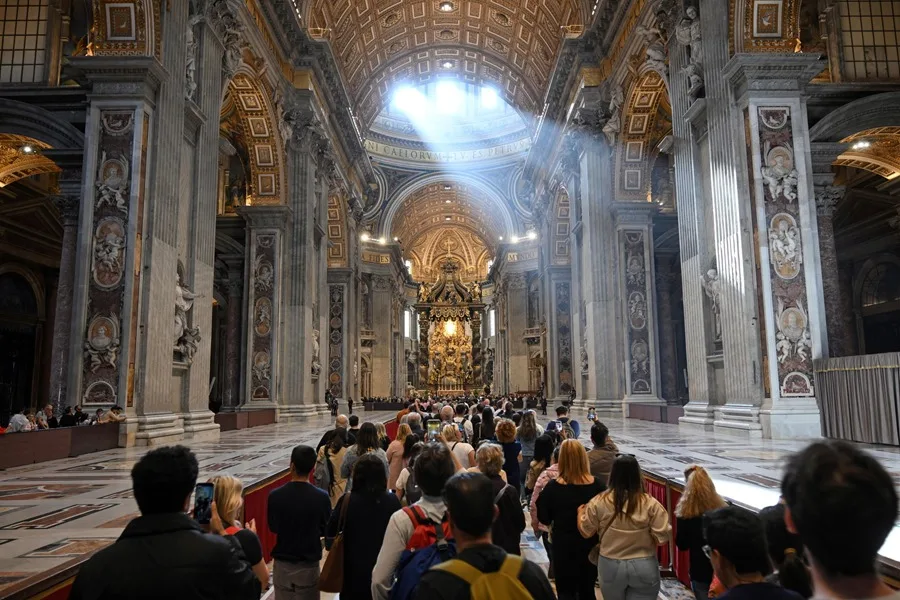
About 150,000 people have passed before Pope Francis’ coffin in the Vatican basilica to say goodbye, in the last three days and until noon this Friday, the eve of his funeral.
The spokesman for the Holy See, Matteo Bruni, confirmed the figure until 12.00 local hours (10.00 GMT).
The passage of the faithful has remained constant in the last few hours, after last night the basilica remained open until 2.30 am (0.30 GMT) and reopened at 5.40 (3.40 GMT).
The Holy See had to change the initial plans of closing the tempo at night so that the thousands of faithful who arrived from all over the world could say goodbye to the pontiff.
The burning chapel of Francis will remain open until 7:00 p.m. local time (17.00 GMT) this afternoon, and then proceed to the ceremony of closing the coffin before its solemn funeral, on Saturday morning.
The Italian Civil Protection has launched an alert on all mobile phones in Rome to warn that the Vatican’s St. Peter’s Square will be closed this afternoon to prepare for the funeral.
The warning, also audible, appeared on mobile phones through the IT-alert system, used in emergencies.
“Civil Protection Department – Farewell to Pope Francis. Closing time of St. Peter’s Square from 5:00 p.m. (3:00 p.m.) on April 25. For tours and schedules of the funeral www.protezionecivile.it«, read the message.
The notice could be read on the telephone screens in Italian, English, French and Spanish due to the high number of tourists and faithful who are in the Italian capital and, above all, in the vicinity of the Vatican.
The Italian authorities estimate that around 200,000 faithful will attend the funeral by the pontiff on Saturday, after which the coffin will be transferred in a funeral procession to the basilica of Santa María la Mayor, where Francis expressed his desire to be buried.
A total of 149 cardinals have already arrived in Rome of the total of 252 that make up the cardinal college, although only 133 will enter the conclave to choose a successor for being under 80 years old, a mandatory rule.
The cardinals who will participate in the funeral tomorrow will visit the tomb of the Argentine pope on Sunday.
The funerals also mark the beginning of the ‘Novendial’, the period of nine days of mourning in the Vatican for the death of the pontiff.
As for the conclave, Vatican legislation establishes that it must begin within a maximum period of 20 days after the death of the pope, which occurred on April 21.
That is why the cardinals are expected to be locked up in the Sistine Chapel between May 5, when mourning ends, and the 10th, when the period of 20 days without a pope is fulfilled.
The Sistine Chapel has announced its closure from April 28 to prepare for the conclave.
International
The Pope’s funeral procession through the center of Rome worries the Italian authorities
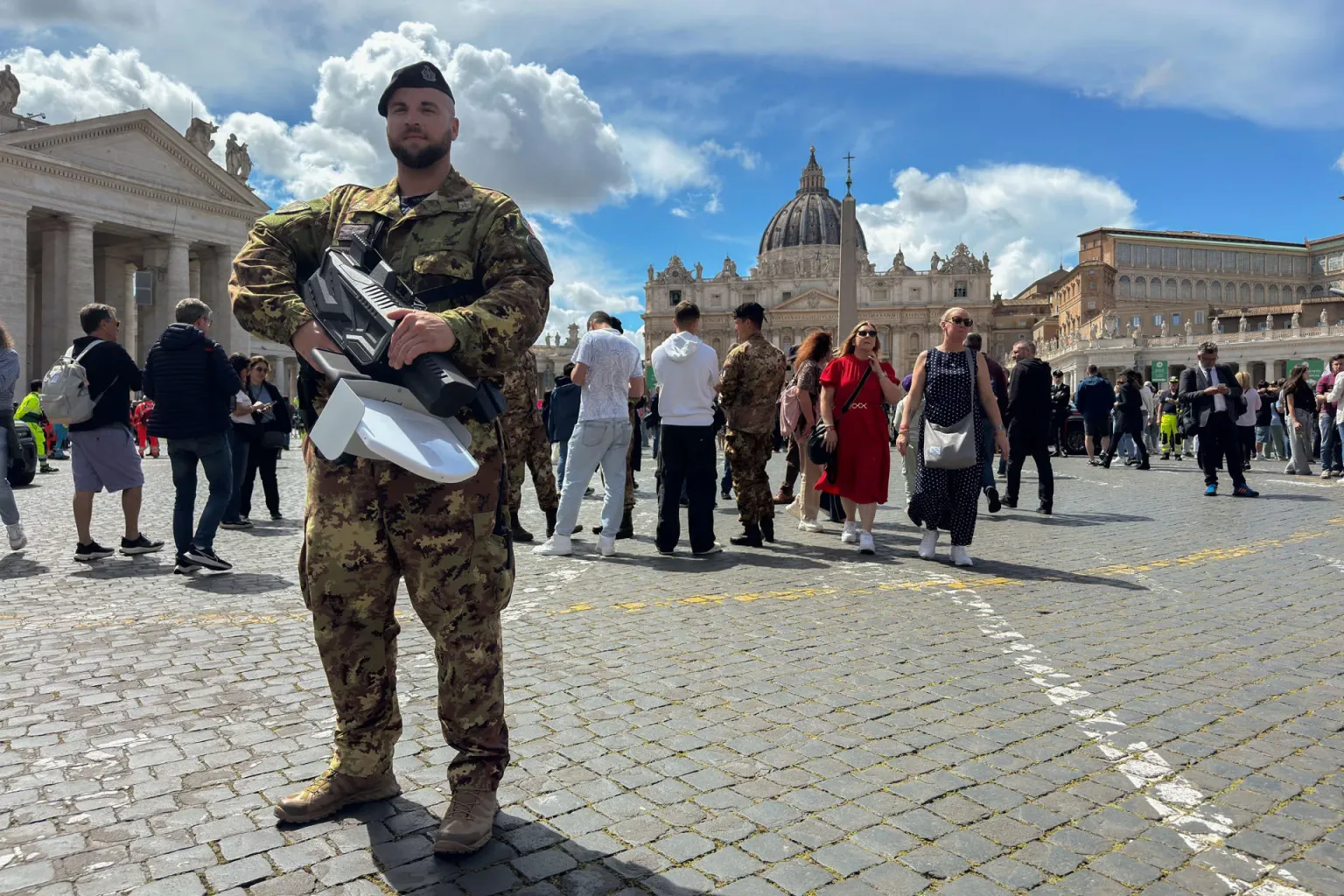
The complexity of the transfer of Pope Francis’ coffin through the center of Rome, from St. Peter’s Vatican to the Basilica of Santa Maria Maggiore, where he will be buried, is the main concern for the Italian authorities, the head of Civil Protection, Fabio Ciciliano, acknowledged on Thursday.
That part of the device, which will take place on Saturday after the funeral, presents important logistical, infrastructure and security challenges, the official admitted at a press conference, in which he also said that the number of faithful who will pass through the burning chapel before, about 61,000, will increase in the coming hours.
On Saturday, after the funeral, his body will be taken in a vehicle in a solemn passage to the Roman basilica of Santa María La Mayor, to be buried in a chapel, as the Argentine pontiff arranged in life, which will collapse the center of the Italian capital.
“I remember that the burial ceremony will be a private ceremony, while immediately after the faithful will be given the opportunity to reach the side of their holiness, and obviously the sustained concentration of faithful must be taken into great consideration,” said Ciciliano.
The route of this funeral procession, which will extend over six kilometers, will be analyzed today in a meeting by those responsible for the organization, who are carrying out a “complete evaluation”.
Ciciliano focused on the exceptional fact that Francisco’s death has coincided with the Jubilee year, and that this is also a time when Rome is usually full of tourists, so it is difficult to estimate the number of people who will attend to follow the funeral.
Despite warning that parallels cannot be established with the death of John Paul II in 2005, Ciciliano reiterated that “we are estimating around 200,000 people, although we do not know if they will be deployed in St. Peter’s Square or along the funeral procession” to Santa María la Mayor.
Meanwhile, the number of faithful who will pass through the burning chapel of Pope Francis, which until 1:00 p.m. this Thursday already amounted to 61,000, will rise significantly in the next few hours, until Friday it closes at 19.00 (17.00 GMT) for the ceremony of closing the coffin before the funeral on Saturday, he anticipated.
The person in charge drew attention to the significant drop in temperatures at night, so he called on the faithful to dress like “an onion” to be able to add or remove layers as needed.
Regarding the arrival of new faithful in Rome, he said that there are 260,000 seats available to travel by train, and that on the day of the funeral about 500 buses to the Italian capital are expected to arrive.
“There will be state, commercial and private flights that will arrive at Fiumicino and Ciampino airports. We have also maintained Pratica di Mare as an airfield,” he added.
He also referred to the reception of the hundreds of world leaders and authorities who will be in Rome to attend the funeral, including the president of the United States or the kings of Spain, which he considered “very complex.”
The preparations “are being developed in close collaboration with the Prefecture of Rome for those aspects related to security, since there are elements that overlap,” he said.
This difficulty grows due to the fact that after the funerals most of these leaders will return immediately, but others prefer to stay in the city.
After the funeral, the second phase of the Civil Protection deployment will be activated, which includes the conclave to elect the new pope, when the forecasts point to an even greater number of faithful, which will also coincide with other massive events such as the final of the Soccer Cup on May 14.
-

 Central America4 days ago
Central America4 days agoNicaragua’s Ortega and Murillo Mourn Pope Francis, Acknowledge ‘Difficult’ Relationship
-

 Central America4 days ago
Central America4 days agoCardinal Rodríguez to Attend Funeral of Pope Francis: “He Was Very Dear to Me”
-

 International4 days ago
International4 days agoDominican Republic Declares Three Days of Mourning for Pope Francis
-

 International4 days ago
International4 days agoDHS Secretary Kristi Noem’s Purse Stolen in D.C. Restaurant Heist
-

 International3 days ago
International3 days agoPope Francis and Trump, a relationship of disagreements marked by migration
-

 International2 days ago
International2 days agoFrom the transfer of the coffin to the funeral, three days to say goodbye to Pope Francis
-

 International4 days ago
International4 days agoPope Francis: The Quiet Architect Behind the U.S.-Cuba Thaw
-

 International3 days ago
International3 days agoWithin Francis’ private wake: respect and prayer for the deceased pope
-

 International2 days ago
International2 days agoModi returns to India and shortens his visit to Saudi Arabia after a deadly attack in Kashmir
-

 International2 days ago
International2 days agoA very heterogeneous and divided conclave will elect the new pope
-

 International3 days ago
International3 days agoTrump’s emissary will visit Russia this week for consultations on the arrangement in Ukraine
-

 International3 days ago
International3 days agoThe pope last called the Gaza parish on Saturday and asked about the children
-

 International3 days ago
International3 days agoCardinal Becciu’s enigma: will he enter the conclave?
-

 International3 days ago
International3 days agoA candidate for the Supreme Court denounces an unequal dispute in the judicial election of Mexico
-

 International3 days ago
International3 days agoAmerican universities and colleges sign a letter against Trump’s policy
-

 International3 days ago
International3 days agoThe Government of Colombia presents twelve questions that it will propose in a popular consultation to promote its reforms
-

 International2 days ago
International2 days agoEl Salvador formalizes the proposal for the exchange of Venezuelan deportees, according to Bukele
-

 International2 days ago
International2 days agoMaradona’s house arrest is again a focus of tension in the trial for his death
-

 International3 days ago
International3 days agoBurma’s military junta extends ceasefire until April 30 due to the earthquake
-

 International2 days ago
International2 days agoThe Peruvian Public Ministry denounces the former attorney general for an alleged corruption case
-

 International2 days ago
International2 days agoA judge orders the Trump Government to restore Voice of America services
-

 International2 days ago
International2 days agoDonald Trump will visit Saudi Arabia, Qatar and the United Arab Emirates in mid-May
-

 International3 days ago
International3 days agoChurch charges ceased or resigned in the papacy of Francis for cases of pedophilia
-

 International3 days ago
International3 days agoRoyal quinoa, the superfood that grows in front of the largest salt flat in the world in Bolivia
-

 International3 days ago
International3 days agoInternational leaders begin to confirm their presence at Pope Francis’ funeral
-

 International19 hours ago
International19 hours agoThe Arab League supports Hamas handing over control of Gaza and weapons to the Palestinian Authority
-

 International19 hours ago
International19 hours agoThe Pope’s funeral procession through the center of Rome worries the Italian authorities
-

 International2 days ago
International2 days agoThe president of the World Bank underlines his intention to lift his veto on nuclear energy
-

 International2 days ago
International2 days agoMarco Rubio reorganizes the State Department to eliminate offices and jobs
-

 International19 hours ago
International19 hours agoMigrants want to stay on Mexico’s southern border because of Sheinbaum’s industrial plan
-

 International19 hours ago
International19 hours agoA group of the poor and a delegation of migrants will participate in the funeral and burial of the pope on Saturday
-

 International2 days ago
International2 days agoThe Brazilian Supreme Court opens trial against six others accused of leading the coup attempt
-

 International2 days ago
International2 days agoA judge in the United States stops the deportation to El Salvador of a hundred Venezuelans
-

 International19 hours ago
International19 hours agoThe pope’s doctor reveals his last moments of life and that he wanted to “die at home”
-

 International19 hours ago
International19 hours agoFrom email to marriage: the day Pope Francis married a Uruguayan couple
-

 International11 mins ago
International11 mins agoAbout 150,000 people say goodbye to the pope in St. Peter’s Basilica before the funeral
-
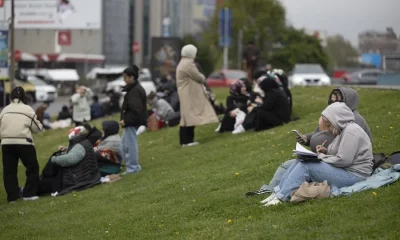
 International9 mins ago
International9 mins agoA 4.5 magnitude earthquake shakes the coast of the Aegean Sea in Turkey without leaving injuries or damage















